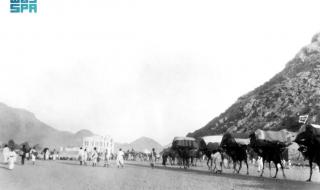
مخطئ من يعتقد أن الشيوعية سقطت في العالم العربي مع سقوط الاتحاد السوفيتي 1991م، نعم سقطت الستالينية، لكن الشيوعية بقيت تزدهر وتعتاش في العالم العربي، فقد وجد الكثير فيها ملاذاً يعبّرون من خلالها عن الآلام التي شعروا بها تجاه الغرب المستعمر، وكما التقوا معها في كراهية الأغنياء في جوارهم، ونقصد هنا بها دول الخليج النفطية التي صدف ظهور النفط فيها مع بداية القرن الماضي، ووجد كارهوها في الشيوعية المبادئ التي تبرر لهم حلم الاستيلاء على تلك الثروات.
ولكي نفهم طريقة تفكير بعض العالم العربي بشقيه «الشارع» و«النخب المثقفة»، علينا أن نرجع مئة سنة للوراء، عندما ظهرت الشيوعية كعقيدة بديلة إثر انفراط القومية العثمانية التي سيطرت حوالي أربعة قرون على العالم العربي وفرّغته من قيمه وتراثه، وعند سقوط إسطنبول تلقفت موسكو أجزاء واسعة منه، لقد صدّق «عرب دول الانتداب والاستعمار» أن موسكو تقف مع قضاياهم.
حتى القومية العربية عندما تبنّتها دول عربية وتنظيمات مثل البعث واللجان الشعبية، كانت في جوهرها شيوعية المبادئ، يسارية الهوى، كارهة للمكوّن العربي الأصيل داخل الجزيرة العربية.
ظهرت الشيوعية لأول مرة بشكل مبكر في لبنان وفلسطين في أوائل القرن العشرين، حيث تأسس الحزب الشيوعي اللبناني العام 1924، تأسست على ضوئها خلايا شيوعية في فلسطين في نفس الفترة تقريباً، تطورت هذه الحركة السياسية لاحقاً في دول عربية أخرى مثل العراق وسورية وغيرهما، وظهرت أحزاب شيوعية في الأربعينيات والخمسينيات وأوائل الستينيات، مثل الحزب الشيوعي العراقي العام 1934م.
كان للتنافس السوفييتي مع الغرب في أوروبا صداه الواسع في إقليمنا، واعتبر الشرق العربي حديقة خلفية لتصفية الخلافات بين عقيدتين متضادتين، الأمر الذي دفع الحركات الوطنية العربية لأن تستدعي الشيوعية بحثاً عن حاضن أيديولوجي يعوّضها ويساندها في مقاومتها للمد الغربي الذي كان رأس الحربة فيه دول الانتداب.
لقد أثّرت الشيوعية في تشكيل طريقة التفكير العربية ومخرجاتها، وبقي هذا التأثير لليوم، ففي حرب تحرير الكويت -مثالاً- انكشفت تلك العقيدة بشكل فاضح، فقد نظرت بعض الدول والشارع العربي المتأثر بالعقيدة الشيوعية إلى الكويت باعتبارها مالاً مستباحاً للعالم العربي -حتى الدول الغنية منه، وأن احتلال بلد ومحوه من الخريطة مقبول ما دام ذلك يتقاطع مع الفكر الشيوعي الذي استوطن وجدان كثير من العرب، تحت أفكار تقاسم الثروات، وبترول العرب للعرب، الذي طبّقوه فقط على حقول النفط الخليجية كما طبق الشيوعيون أفكارهم على مصانع الصلب في روسيا.
التأثير الأقدم للشيوعية في العالم العربي تركز في دعمه لتنظيمات يسارية متطرفة اعتنقت الشيوعية روحاً وتحالفت مع موسكو تنظيماً، وهيمنت الأفكار الشيوعية واليسارية على سياساتها ومواقفها، كل ذلك أثر لاحقاً وخاصة على أساليب الحكم بظهور الأنظمة الاشتراكية ذات الحزب الواحد مثل دول «سورية والعراق وليبيا والسودان واليمن الجنوبي».
كما دمجت الكثير من النخب العربية بين الأفكار اليسارية الشيوعية وبين الأيديولوجيا الإسلاموية، وشكّلوا ما عرف فيما بعد بـ«الشيوعية الإسلامية» التي قادت أجزاء من العالم العربي لعقود منذ هزيمة 1967م، ولا تزال آثار ذلك التحالف بين اليسار والشيوعية والإسلاموية المتطرفة حتى اليوم.
وبالرغم من أن الشيوعية في شكلها السياسي انتهت، إلا أن الشيوعية كسلوك وطريقة تفكير لم تختفِ، بل توارت خلف مظاهر: يسارية، وإسلاموية، وقومية، واشتراكية مختلفة، وغالباً ما استوعبت أو تكيّفت مع الأيديولوجيات السياسية والاقتصادية السائدة بدلاً من أن تختفي من المشهد تماماً.
لكن الأهم في نظري هو التأثير الفكري الذي استوطن بعض العالم العربي ولا يزال حتى اليوم، فعلى سبيل المثال.. تتسامح النخب السياسية والثقافية ومعها قواعد واسعة من الجماهير العربية مع وجود قواعد عسكرية روسية في سورية مثلاً، لكنها لا تتسامح مع قواعد عسكرية بريطانية أو أمريكية، معتبرة الأولى ميزة، والأخرى مسبّة.
هذا ليس مجرد رأي عابر، بل هي قناعات راسخة استوطنت وجدان معظم العالم العربي، ومنها تنطلق مواقفهم وقراراتهم تجاه كثير من القضايا، فهم يرون السعودية -مثالاً- كما كان يراها أجدادهم قبل 70 عاماً أو 90 عاماً، ويتبنون مواقف آبائهم التي أخذوها عندما كانت موسكو تبيع الوهم في شوارع بيروت ودمشق والقدس وبغداد وعدن وطرابلس باعتبارها دولاً طليعية، وتتهم السعودية ودول الخليج الأخرى بالرجعية.
في العلاقة مع إسرائيل، تتسامح «الشيوعية الإسلاموية» مع اتفاقيات السلام العديدة، والتطبيع الواسع، وتتفهم العلاقات الاقتصادية العميقة، وتتبنى مبرراتها بل وتدافع عنها ما دامت ليست سعودية، وفي الوقت نفسه تلاحق الرياض في كل تصرفاتها الثقافية أو الاقتصادية أو السياسية، حتى ولو كان الأمر مجرد دعاية أو كذبة تطير بها الركبان.
معتنق «الشيوعية الإسلاموية» يرى نفسه أكثر قرباً من الروس، والصينيين، والفنزويليين، والقاعدة و«داعش» والألوية الحمراء، وفي الوقت نفسه يحمّل «دول الرفاه العربية» كل مشاكله وإخفاقاته منذ الاستقلال لليوم، يحلم بالغنى وتحسّن أحواله، ولكن عبر احتلال دول الخليج لو أتيحت له الفرصة، كما أتيحت لصدام حسين.
وما نراه اليوم مع كل الاضطراب الذي يضرب الإقليم العربي هو في جوهره شيوعية تتستر وراء شعارات قضايا وطنية وأممية، بينما المشاعر الحقيقية تقف في الظلام تحمل سكيناً شيوعية وأمنيات ستالينية.
It is a mistake to believe that communism fell in the Arab world with the collapse of the Soviet Union in 1991. Yes, Stalinism fell, but communism continued to thrive and survive in the Arab world. Many found in it a refuge to express the pain they felt towards the colonial West, and they shared a hatred for the wealthy in their vicinity, referring specifically to the oil-rich Gulf states, where the discovery of oil coincided with the beginning of the last century. Those who despised these states found in communism the principles that justified their dream of seizing those riches.
To understand the mindset of some in the Arab world, both "the street" and "the educated elites," we must go back a hundred years, to when communism emerged as an alternative doctrine following the disintegration of Ottoman nationalism, which had dominated the Arab world for about four centuries, draining it of its values and heritage. When Istanbul fell, Moscow seized large parts of it. The "Arabs of the mandate and colonial states" believed that Moscow stood with their causes.
Even Arab nationalism, when adopted by Arab states and organizations like Baath and popular committees, was at its core a communist ideology, leftist in nature, and hostile to the authentic Arab component within the Arabian Peninsula.
Communism first appeared early in Lebanon and Palestine in the early twentieth century, with the establishment of the Lebanese Communist Party in 1924. Communist cells were founded in Palestine around the same time. This political movement later developed in other Arab countries like Iraq and Syria, and communist parties emerged in the 1940s, 1950s, and early 1960s, such as the Iraqi Communist Party established in 1934.
The Soviet competition with the West in Europe had a wide resonance in our region, and the Arab East was considered a backyard for resolving conflicts between two opposing ideologies. This prompted Arab nationalist movements to invoke communism in search of an ideological incubator to support them in their resistance to the Western tide, which was spearheaded by the mandate states.
Communism influenced the formation of Arab thinking and its outputs, and this influence remains to this day. For example, during the liberation of Kuwait, that ideology was exposed in a blatant manner, as some countries and the Arab street influenced by communist ideology viewed Kuwait as a plundered wealth for the Arab world—even for its wealthy states—and that the occupation of a country and its erasure from the map was acceptable as long as it aligned with the communist thought that had settled in the consciousness of many Arabs, under ideas of wealth sharing and "Arab oil for Arabs," which they applied only to the Gulf oil fields, just as the communists applied their ideas to steel factories in Russia.
The earlier influence of communism in the Arab world focused on its support for extreme leftist organizations that embraced communism in spirit and allied with Moscow organizationally. Communist and leftist ideas dominated their policies and positions, which later influenced, especially in governance styles, with the emergence of socialist systems with a single party, such as in Syria, Iraq, Libya, Sudan, and South Yemen.
Many Arab elites also blended leftist communist ideas with Islamist ideology, forming what later became known as "Islamic communism," which led parts of the Arab world for decades following the defeat of 1967, and the effects of that alliance between the left, communism, and extreme Islamism still persist today.
Although communism in its political form has ended, communism as behavior and a way of thinking has not disappeared; rather, it has receded behind manifestations of leftism, Islamism, nationalism, and various forms of socialism, often absorbing or adapting to the prevailing political and economic ideologies instead of disappearing completely from the scene.
However, the most important aspect, in my view, is the intellectual influence that has settled in some parts of the Arab world and still exists today. For example, political and cultural elites, along with a broad base of the Arab masses, tolerate the presence of Russian military bases in Syria, for instance, but do not tolerate British or American military bases, considering the former a privilege and the latter a disgrace.
This is not just a passing opinion; rather, it is a deeply rooted conviction that has settled in the consciousness of most of the Arab world, from which their positions and decisions on many issues arise. They see Saudi Arabia, for example, as their ancestors did 70 or 90 years ago, adopting the positions of their parents taken when Moscow was selling illusions in the streets of Beirut, Damascus, Jerusalem, Baghdad, Aden, and Tripoli, portraying them as pioneering states, while accusing Saudi Arabia and other Gulf states of being reactionary.
In relation to Israel, "Islamic communism" tolerates numerous peace agreements, widespread normalization, understands deep economic relations, and adopts and defends its justifications as long as they are not Saudi. At the same time, it pursues Riyadh in all its cultural, economic, or political actions, even if it is merely propaganda or a lie that spreads like wildfire.
The adherent of "Islamic communism" sees himself as closer to the Russians, Chinese, Venezuelans, Al-Qaeda, ISIS, and the Red Brigades, while simultaneously blaming the "Arab welfare states" for all his problems and failures since independence to this day. He dreams of wealth and improved conditions, but through the occupation of the Gulf states if given the chance, just as Saddam Hussein did.
What we see today with all the turmoil affecting the Arab region is, in essence, communism hiding behind the slogans of national and international issues, while the true feelings stand in the shadows, wielding a communist knife and Stalinist wishes.
ملحوظة: مضمون هذا الخبر تم كتابته بواسطة عكاظ ولا يعبر عن وجهة نظر مصر اليوم وانما تم نقله بمحتواه كما هو من عكاظ ونحن غير مسئولين عن محتوى الخبر والعهدة علي المصدر السابق ذكرة.






